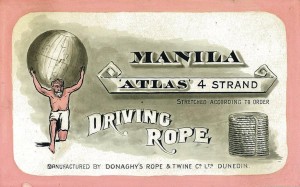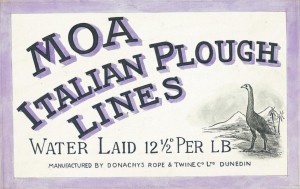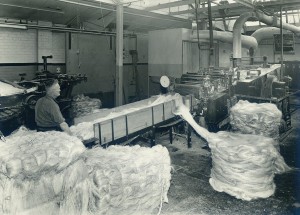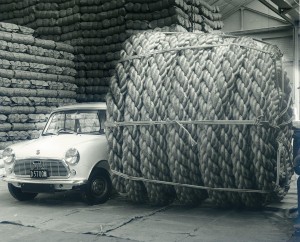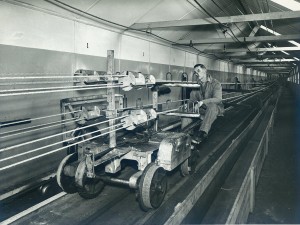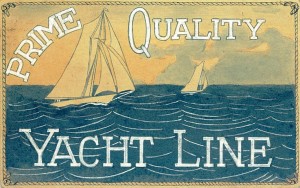Post researched and written by HUMS intern, Ceri Spivey
Amongst the business records held here at the Hocken Collections Uare Taoka o Hākena, are those from the eminent local and national department store chain, the Drapery and General Importing Company of New Zealand (lovingly known as the D.I.C.). Established in 1884 by prominent businessman Bendix Hallenstein as a ‘wholesale family warehouse’, the D.I.C. quickly flourished with multiple locations nationwide, until the business eventually closed its doors in 1991, after over a hundred years of successful trading. While much has been written about the store’s revolutionary retail practices, economic successes and male leadership, little attention has been paid to women’s involvement. These hundreds of women worked the shop floor, ran departments, hired staff, dominated shareholding, and breathed life into the company from the moment its doors opened.
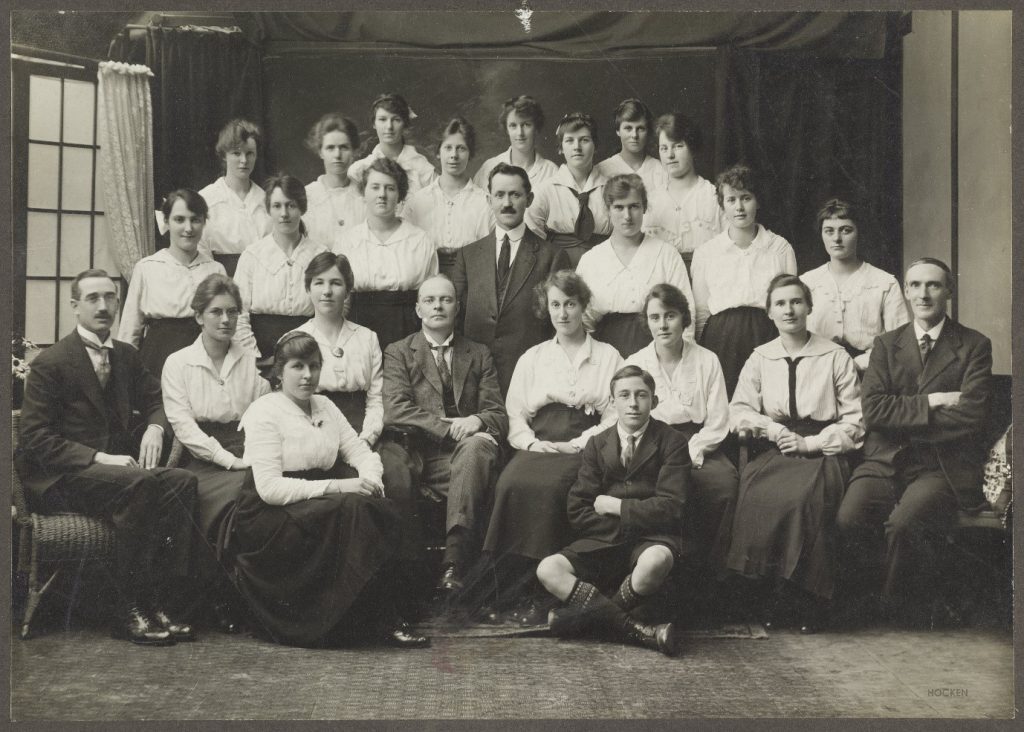
A Guy Morris photo of the Dunedin D.I.C. staff, pre-WWI. MS-5063/060, Hocken Collections, Uare Taoka o Hākena, University of Otago.
Department stores revolutionised women’s lives at the turn of the twentieth century beyond retail alone, being female designated and dominated spaces. Women would shop aided by other women for household goods, intimate apparel, clothing and more, in a progressive female-orientated environment. Our own D.I.C. was one such example, having female facilities and toilet amenities, an important shift in the Victorian era, as public toilets were not available to the women of Dunedin until 1910[i]. Alongside amenities, the female staff of the D.I.C. were an integral part of the department store from the outset, becoming well-known personalities, celebrated, and showcased, as early advertisements highlight.
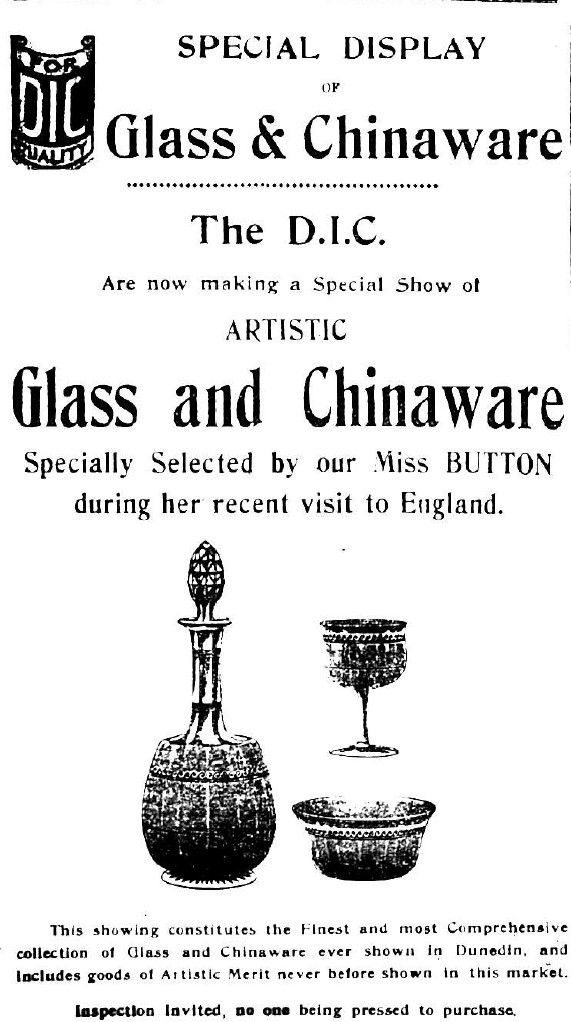
‘Our Miss Button’ advertisement, Otago Witness, 19 October 1910, p.5. [image from microfilm]
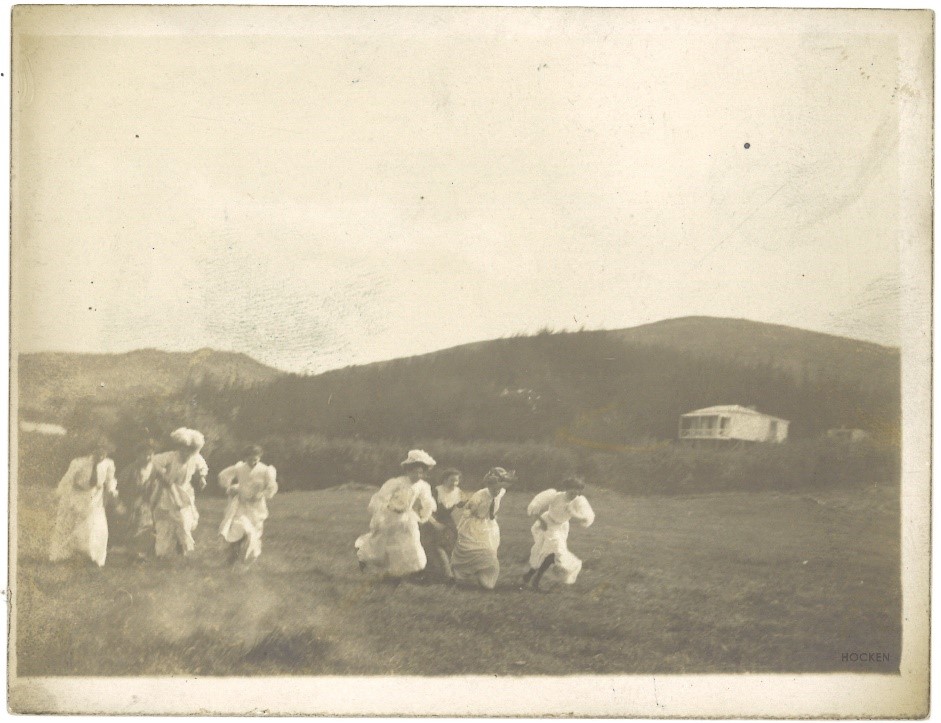
D.I.C. company picnic running race, c.1900. MS-5063/012/002, Hocken Collections, Uare Taoka o Hākena, University of Otago.
As imagery found in the D.I.C. archives illustrates, staff social activities were tied to the store, with women participating in company sports events, picnic races and clubs, alongside philanthropic groups like the D.I.C. Girls’ Patriotic Club. The staff of the D.I.C., like thousands of women nationwide, heeded the call of Lady Annette Louise Foljambe Liverpool, wife of New Zealand’s Governor-General, for the women of New Zealand to band together to provide care parcels packed with ‘necessaries’ for soldiers serving in the Great War.
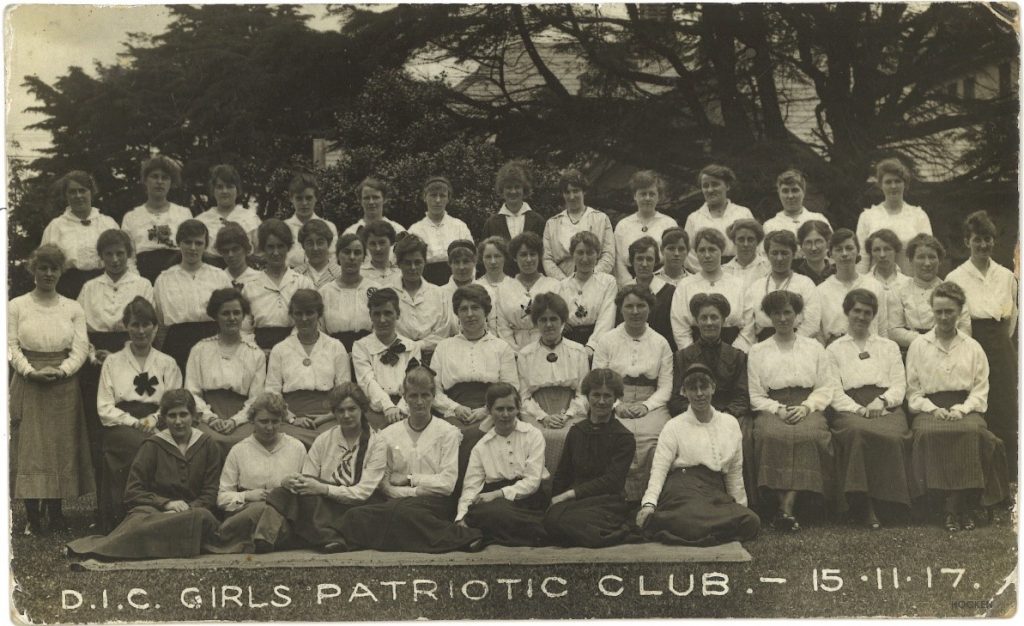
D.I.C. Girls’ Patriotic Club postcard, 1917. MS-5063/023, Hocken Collections, Uare Taoka o Hākena, University of Otago.
Headed by crockery manager and buyer Miss Frances Alice Button, over seventy ‘girls’ under the age of twenty from the D.I.C. became members, meeting regularly in the nearby Savoy Lounge. Using Lady Liverpool’s Her Excellency’s Knitting Book as a guide, held within our publications collection, the women of the D.I.C. would parcel necessaries- cigarettes, letters, and knitting, for brothers, colleagues, and troops at home and abroad.
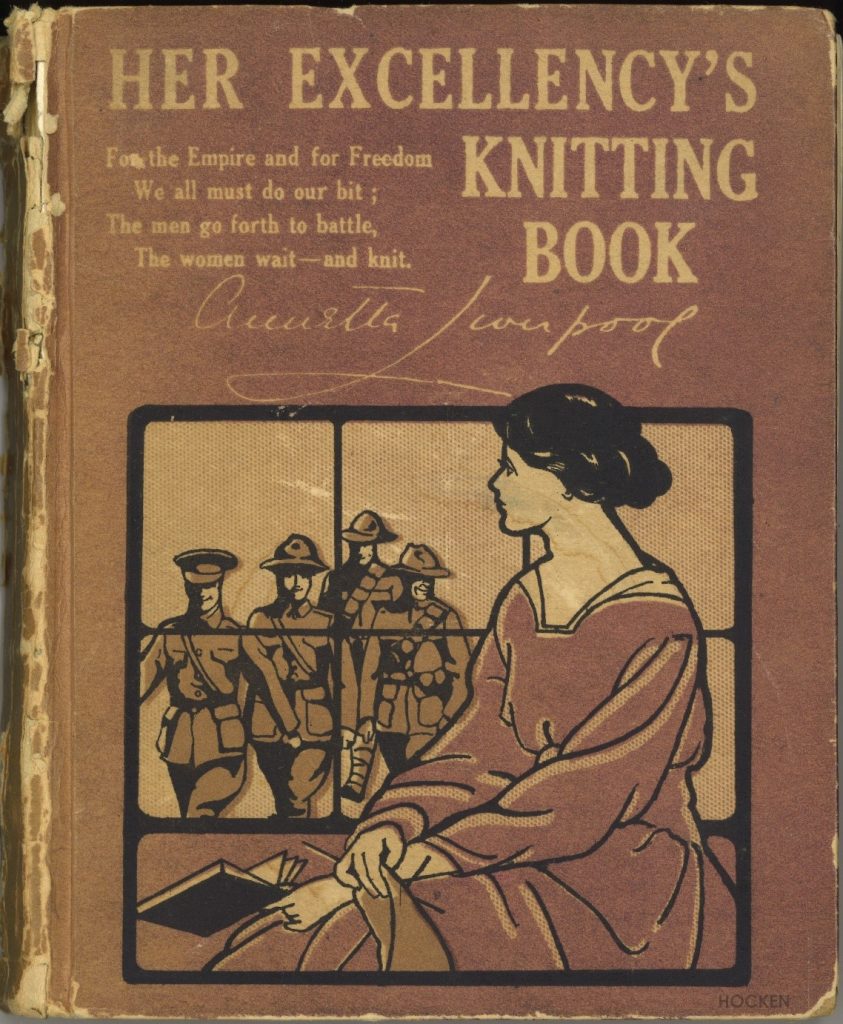
Her Excellency’s knitting book (1915), by Annette Foljambe, Countess of Liverpool. Ferguson and Osborn Printers, Wellington. Hocken Collections, Uare Taoka o Hākena, University of Otago.
Miss Button was unable to attend the club’s December 1917 meeting due to a severe illness. Poignantly, a letter was read on her behalf: “Although the sadness of this great war was responsible for the formation of our club, its outcome has been a mutual understanding and comradeship”.[ii] After a long and fruitful career at the D.I.C. (which we will cover in the next blog post on the women of the D.I.C.), Miss Frances Alice Button succumbed to her illness on the 18th of June 1918. The knit and purl girls of the D.I.C. continued their good works, headed by the talented dressmaker Miss E. Lawrence, until the end of World War One.
Frances Alice’s words were ringing true for thousands of New Zealand women, who took up their knitting needles to comfort their loved ones ravaged by war, but gained friendship, autonomy, and much more.
References
[i] St Clair, as a popular seaside destination, saw the first public toilet for women built in 1908, but it wasn’t until 1910 that the central city had “underground conveniences” for women. See Alison Breese’s digital thesis below for more information on the fascinating history of Dunedin’s public toilets: https://scalar.usc.edu/works/conveniences/chapter-one-public-conveniences-and-the-rise-of-undergrounds
[ii] Evening Star, 15 December 1917, Page 4


